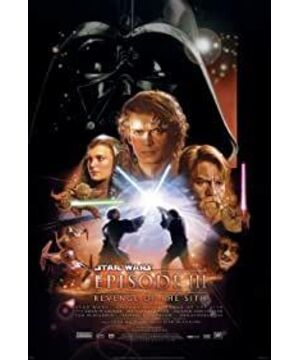This makes the distribution company very puzzled, why every time the "Star Wars" series of new dramas in Western countries is released, the domestic employee leave rate will rise by nearly 20%, but in the populous China, there has never been a large and fixed audience. And "Star Wars fans"? Why is the "Star Wars" series, a film epic born in 1977 and crafted by many filmmakers, is not as popular and recognized in China as the film upstart "Harry Potter" series and What about the "Lord of the Rings" series? Why did the "Star Wars" series have far exceeded the scope of a movie's cultural influence on the West, and was even used by President Reagan to name the strategic missile defense plan, but it was still labeled a "Hollywood blockbuster" in the Chinese market "How does the label work with other ordinary commercial productions?"
From a time point of view, it can be explained as follows: The first three films that established the position of the "Star Wars" series in film history were mainly shot in the late 1970s and early 1980s. As the country did not introduce them, Chinese audiences missed the "Star Wars" series. The golden age of the "War" series turned out. From the perspective of film and television art, we can also find many flaws in the "Star Wars" series of movies. For example, the storyline is relatively thin and the characters are not delicate. The special effects of the first three movies now seem to be outdated, and the latter three. Although his special effects are gorgeous, they are not new in today's film industry. But none of these can explain the huge and continuous cultural influence of the "Star Wars" series in the West-why the "Star Wars" six-part series has become a myth about dreams and adventures in the minds of Westerners, but in most Chinese audiences But in your eyes it is just a lively accumulation of movie special effects without knowing the so-called magic tricks?
It seems that in order to better answer this question, we still have to interpret it from the perspective of the differences between Chinese and Western cultures. In fact, science fiction films with space as the theme have always been unpopular in the Chinese market, which is directly related to the cultural acceptance of Chinese audiences. In the author’s opinion, behind the unconstrained artistic imagination of the "Star Wars" series of films embodies the Westerners’ desire for space exploration and adventure in the future. The instinctive impulse to discover. The traditional Chinese culture is deeply influenced by mainland civilization or agricultural civilization. The Chinese people seem to lack an adventurous spirit in their genes, just as the "Han Shu" said "Remove in peace, the nature of the people". The introverted Chinese have always been unaware of concepts such as expansion, exploration, and colonization, so it is no wonder that Chinese audiences are not interested in film themes such as outer space adventures.
An agricultural civilization was born in China very early in history. The characteristics of the agricultural industry require people to stably and regularly repeat production on a piece of land, and agricultural work is safer than nomadic, fishing and hunting, and income is more stable. It is precisely that China has a vast area of land for farming, which has created the glorious agricultural civilization of China for thousands of years, and has also formed the introverted, peaceful, peaceful, relocation of the Chinese people in the national culture, and the emphasis on conformity and inconsistent in the world. Contention. In addition, politically, China realized the unification of the East Asian continent very early, and the concept of "great unification" is deeply rooted in the hearts of the people. Therefore, during periods of division, politicians regard the reunification of the territory of China as their ultimate goal, but rarely I have thought about expanding overseas. Those who try to use troops outside the mainland are often the so-called military tyrants in history. Coupled with the influence of China's geographical environment, there are oceans and isolated islands to the east, deserted sands and mountains to the west, dense forests to the south and desolate plateaus to the north, all of which restrict the further development of the Chinese to the surrounding areas. Therefore, the above economic, political, geographic, and cultural factors make Chinese culture have the characteristics of typical continental civilization and agricultural culture, making Chinese people comfortable with the prosperity and stability of the mainland, but lacks the ambition to march into the ocean, which accounts for two-thirds of the earth. And vision. Compared with the Central Plains, residents of coastal areas such as Guangdong and Fujian have a relatively strong sense of adventure and mercantile spirit. Today, most of the overseas Chinese are from Fujian and Guangdong. Although China had the technical conditions to conquer the ocean in Zheng He's time, the balance of history was still leaning toward the West, and they created the glorious history of a century of ocean civilization in modern mankind. History has given China a chance, but China regrets that it has not been able to rewrite history.
Looking back at the Western world. More than two thousand years ago, the ancient Roman philosopher Cicero put forward the earliest argument of the sea power theory that "who controls the ocean controls the world". Whether it is Greece, the origin of Western civilization or the beginning of modern Britain, due to the humid monsoon climate, its land is not suitable for agricultural cultivation. In addition, many European countries are inherently small in land area, and many countries are built on islands. The conditions for navigation and river transportation are extremely convenient. Therefore, maritime trade and maritime civilization have appeared very early in Europe, and this has formed the outgoing, open, warlike and exploratory spirit of Westerners in the national character. At the same time, the martyrdom and adventurous spirit promoted and preached by Christianity in the name of religion has further strengthened the ambition of Westerners in their blood to expand. In history, a group of brave and fanatical missionaries followed in the footsteps of Western colonists. In 1620, the Mayflower carrying 102 Puritans set sail from England and became the first ship of immigrants to North America, and it also witnessed the birth of a future country. In the western development of this country, a group of cowboys with nothing rushed to the front line of the horse racing circle, deducing the western stories full of freedom and adventure. Speaking of this, I can't help but think of a personal experience of my own. The author used to be a teacher of Chinese as a foreign language, and the target audience was undergraduates from a university in the United States. I still remember a teacher who taught us teaching experience and said that Americans like the word "adventure" very much, so I talked to the students The expression "China Adventure" is often used when traveling in China. Facts have proved that students become extremely excited when they hear this statement.
Things change for stars. With the advent of the space age in the middle of the last century, Westerners' dreams and explorations of the ocean have also extended to the boundless starry sky of the universe. Many outer space planets in "Star Wars" have an attributive term-colony (colony); and the spaceships of various shapes in the film are just like the ships piloted by Magellan and Da Gama in the great voyage era. A ship of courage and ambition; the character and experience of Solo, the captain of the "Millennium Eagle" spaceship, the protagonist in the play, is the resurrection of the typical American cowboy in Hollywood westerns in science fiction; it runs through the entire "Star Wars" series. The main line is that the Galactic Republic Resistance Organization led by Luke finally defeated the dictatorship of the Sith the Great. This is in line with the mainstream Western ideology, and it also conforms to the consistent criteria for Hollywood movies to export Western mainstream cultural values to the world. It is nothing more than a change. It's just a gorgeous shell. Therefore, the "Star Wars" series of films represent a culture of exploration and expansion. Its exploration, adventure and dreams of space reflect the outgoing, open, and martial characteristics of Western culture, which is what traditional Chinese culture lacks. . And this also explains why the "Lord of the Rings" movies with the theme of resisting foreign aggression and defending the Chinese mainland with the theme of "great unification" can be generally accepted by Chinese audiences.
From the experience of the "Star Wars" series of movies in the Chinese market, we can read many hidden national characters. The phrase "character determines destiny" can be said to have come true. The national character of Chinese people seems to have been destined for a century of humiliation in modern China, and it is hard to say whether this character will affect the future of our nation. With the ascent of the "Shenzhou VI" spacecraft, China has been at the forefront of the space age in terms of technology and artifacts. In order to avoid the recurrence of the tragedy of Zheng He's era, from the ideological and cultural level, whether the Chinese people are ready to welcome the space age Are you ready?
View more about Star Wars: Episode III - Revenge of the Sith reviews











